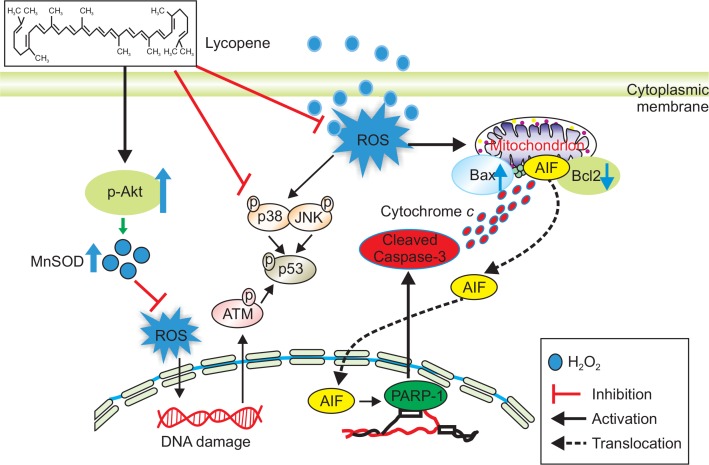Fig. 6.
Schematic representation of proposed mechanisms by which lycopene prevents oxidative stress in MSCs. Oxidative stress triggers the induction of reactive oxygen species (ROS) in MSCs. ROS lead to the phosphorylation of ATM and apoptosis-associated MAPK (p38 and JNK) signaling pathway, resulting in augmentation of the phosphorylation of p53. Moreover, ROS break the balance between Bax and Bcl2, resulting in the induction of apoptosis via the cleavage of PARP-1 and Caspase-3. Lycopene suppresses oxidative stress-induced apoptosis through Akt-MnSOD axis. In addition, lycopene decreases the phosphorylation of apoptosis-associated MAPK (p38 and JNK). These effects of lycopene on oxidative stress induce the decrease in the phosphorylation of ATM-p53 signaling pathway and the protection of cleavage PARP-1 and caspase-3, resulting in prevention of apoptosis and augmentation of survival in MSCs. ATM; ataxia telangiectasia mutated serine/threonine protein kinase, MAPK; mitogen-activated protein kinases, PARP-1; poly [ADP-ribose] polymerase 1, PI3K; phosphatidylinositol-4,5-bisphosphate 3-kinase.

